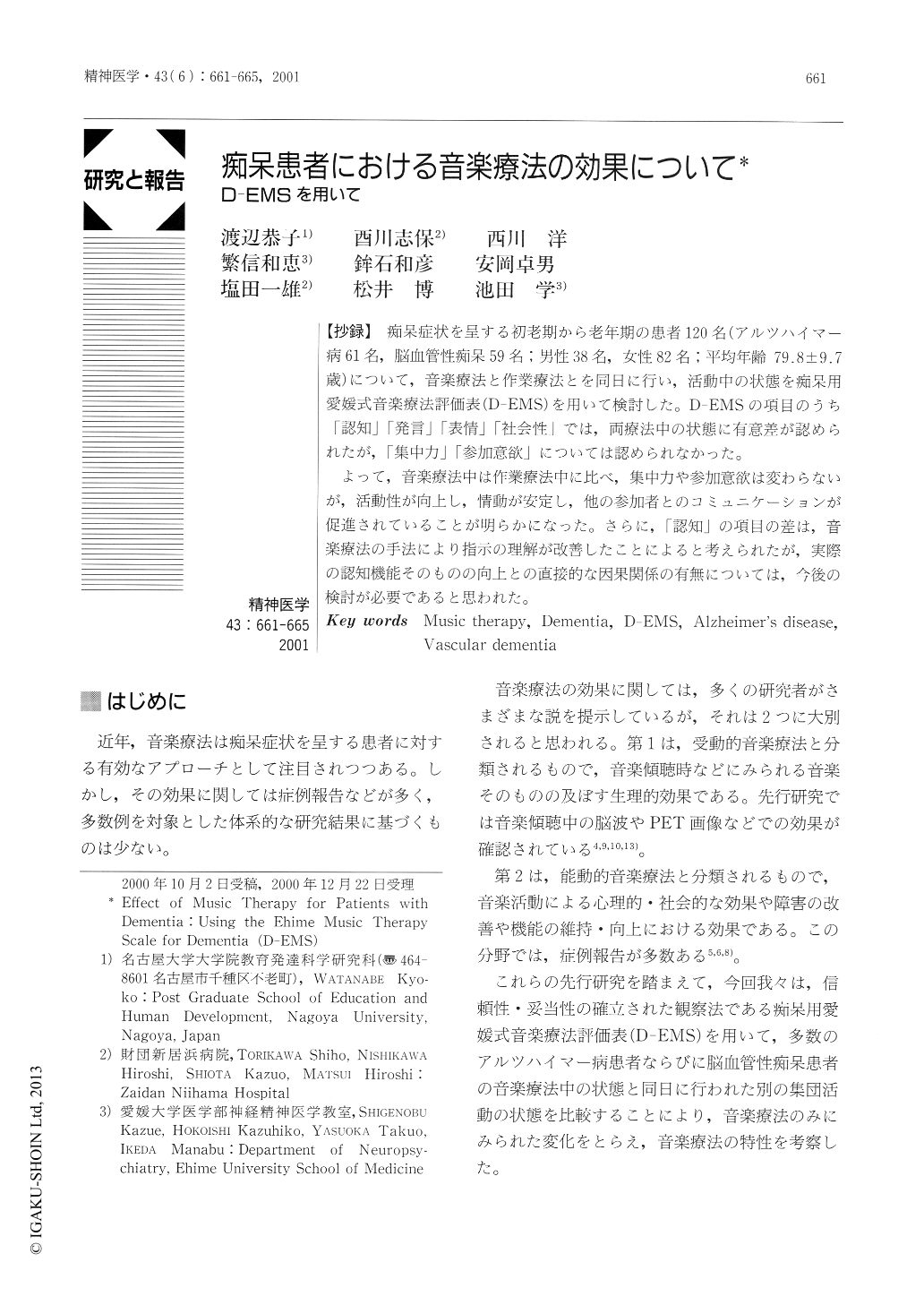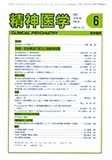Japanese
English
- 有料閲覧
- Abstract 文献概要
- 1ページ目 Look Inside
- サイト内被引用 Cited by
【抄録】 痴呆症状を呈する初老期から老年期の患者120名(アルツハイマー病61名,脳血管性痴呆59名;男性38名,女性82名;平均年齢79.8±9.7歳)について,音楽療法と作業療法とを同日に行い,活動中の状態を痴呆用愛媛式音楽療法評価表(D-EMS)を用いて検討した。D-EMSの項目のうち「認知」「発言」「表情」「社会性」では,両療法中の状態に有意差が認められたが,「集中力」「参加意欲」については認められなかった。
よって,音楽療法中は作業療法中に比べ,集中力や参加意欲は変わらないが,活動性が向上し,情動が安定し,他の参加者とのコミュニケーションが促進されていることが明らかになった。さらに,「認知」の項目の差は,音楽療法の手法により指示の理解が改善したことによると考えられたが,実際の認知機能そのものの向上との直接的な因果関係の有無については,今後の検討が必要であると思われた。
61 patients with dementia due to Alzheimer's disease and 59 with vascular dementia (38 men and 82 women ; mean age 79.8±9.7) were evaluated by the Ehime Music Therapy Scale for Dementia (D-EMS) during sessions of music therapy and occupational therapy performed on the same day.
There were significant differences in Cognition, Speech. Facial Expression, and Socializability scales, but not in Concentration or Motivation scales during these two sessions.
In summary, although the motivation to get involved, and the concentration during music and occupational therapy did not change, patients were more active, stable, and communicative during music therapy than during occupational therapy. In addition, the improvement of cognition was greater during music therapy than during occupational therapy. This seemed to be caused by better comprehension during the former, but a future study to assess whether the Cognition scale score reflects a real improvement is called for.

Copyright © 2001, Igaku-Shoin Ltd. All rights reserved.


